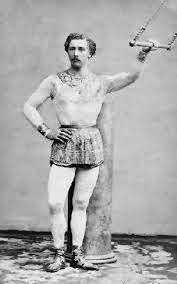Corporeal Hitler in Repose
One hundred years ago today the Great War began. On the eve
of war, Sir Edward Grey, the British Foreign Secretary had this to say:
"The
lamps are going out all over Europe, we shall not see them lit again in our
life-time." Some reckon the lamps never came back on.
The legacy of the First World War is our modern world. Few
today realise the significance of this great conflict and its role in molding
our present.
The First World and the Birth of our World
There has been much nonsense said and written about the
First World War. The popular, and enduring image, is of brave, young,
idealistic soldiers led by callous well-fed generals situated many miles from
the front. The myth lingers and echoes of 'lions led by donkeys' can still be
heard today. Of course there is some truth in this, as in all great myths. But
this is not the whole truth. The losses of men and material were indeed
phenomenal. With our modern minds we find it hard to fathom how men endured;
their mindset is alien and beyond our comprehension. Losses encountered then
would be unthinkable today. The irony of course is that our modern mindset, and
the birth of the modern world, is largely due to the First World War. And yet
most people today would be hard put to even state, with any accuracy, the date
it began.
Strength in Defense
The dilemma faced by military leaders, of all the warring
states, in the First World War was that defence had become immensely strong.
But wars are not won by those applying wholly defensive strategies. Wars are
won by the offensive. To rely totally on defence is to cede initiative to those
who are prepared to attack. The reasons why defense had become so strong are
many. The bolt action rifle, the machine gun and cannon capable of delivering
high explosive are obvious causes. Barbed wire made a cheap but efficient means
of checking an advance, or at least holding it until the machine gun had done
its work. Less obvious causes relate to transport. Breakthrough could be
achieved by huge effort. Advance could only occur, at best, at the pace of a man's walk. Those on the defensive could rush fresh soldiers to plug
the gap by motor vehicle or more usually by train. The aggressor tired, and now
without heavy artillery, would be faced by fresh and well provisioned
opponents. Eventual victory would go to those who continued to attack. They
would have to accept the high casualty list; those relying on defence would
eventually run out of land. The trick of course, for the attacker, was not to
run out of men before this. The Russians were perhaps an exception. They could
retreat a very long way and still remain in the war; their man supply was
almost limitless. Other forces would come to underlie their eventual defeat.
All the warring states appreciated these facts and all pursued, in the main, an
aggressive attacking stance throughout. This is not to say that all states
fought on the offensive at all times on all fronts. No state had the
wherewithal for this. Defence and relative inactivity were necessary at times.
But if not actively engaged in the offensive the warring nations were planning
for the attack.
Casualty Rates and the First World War
The generals expected and prepared for high casualty rates.
As one French general put it: 'Whatever you do, you lose a lot of men'. On the first
day of the Somme the British suffered 60,000 casualties By the end of the offensive, three and a half months
later, 420,000 men had been lost. The Germans suffered 650,000 losses in men. Although
on the defensive, German doctrine of the time demanded aggressive
counterattacks to take back lost ground. In this way they suffered the
disadvantages of both defence and attack.
War Without End
Thoughtful men argued that there must be another way to
achieve victory. But no one could suggest how. There was no other way.
Instruments designed to address the balance between attack and defence were
available to First World War generals, but they had not yet achieved
battlefield mastery. The tank and aeroplane would eventually tip the balance in
favour of the attacker, but that would have to await another war. The
consequences of losing the war were unthinkable. And so men continued to fight
and die. Resources available to both sides in men and material were vast;
industrialisation assured that. Victory and peace could not be achieved without
great cost. Some thought the war would never end.
Kaiser Schlacht
All wars end. The First World War ended in November 1918.
The beginning of the end occurred in the preceding March. This started with the
'Kaiser's battle'. The Germans thought that this western offensive would end
the war and in a way they were right. The Germans quickly gained swathes of
French territory. The reasons why they succeeded where others had failed will
not be considered here, though it is fair to say that new tactics were only
partially responsible. But even the mighty German army could not overcome the
principles of war. Impressive gains were mirrored by impressive casualty lists.
At the battle's end the Germans had lost at least 800,000 men.The German army could not sustain such losses at
this time in the war. The initiative went to the allies. The allies continued
to attack until the very end, although their gains in land were modest.
War to End all Wars
The war ended on the eleventh hour of the eleventh day of
the eleventh month. It is estimated that 8.5 million soldiers died in the war. After such sacrifice surely the world
would become a better place? A naive sentiment perhaps, but laudable even so;
disillusionment would set in later.





































